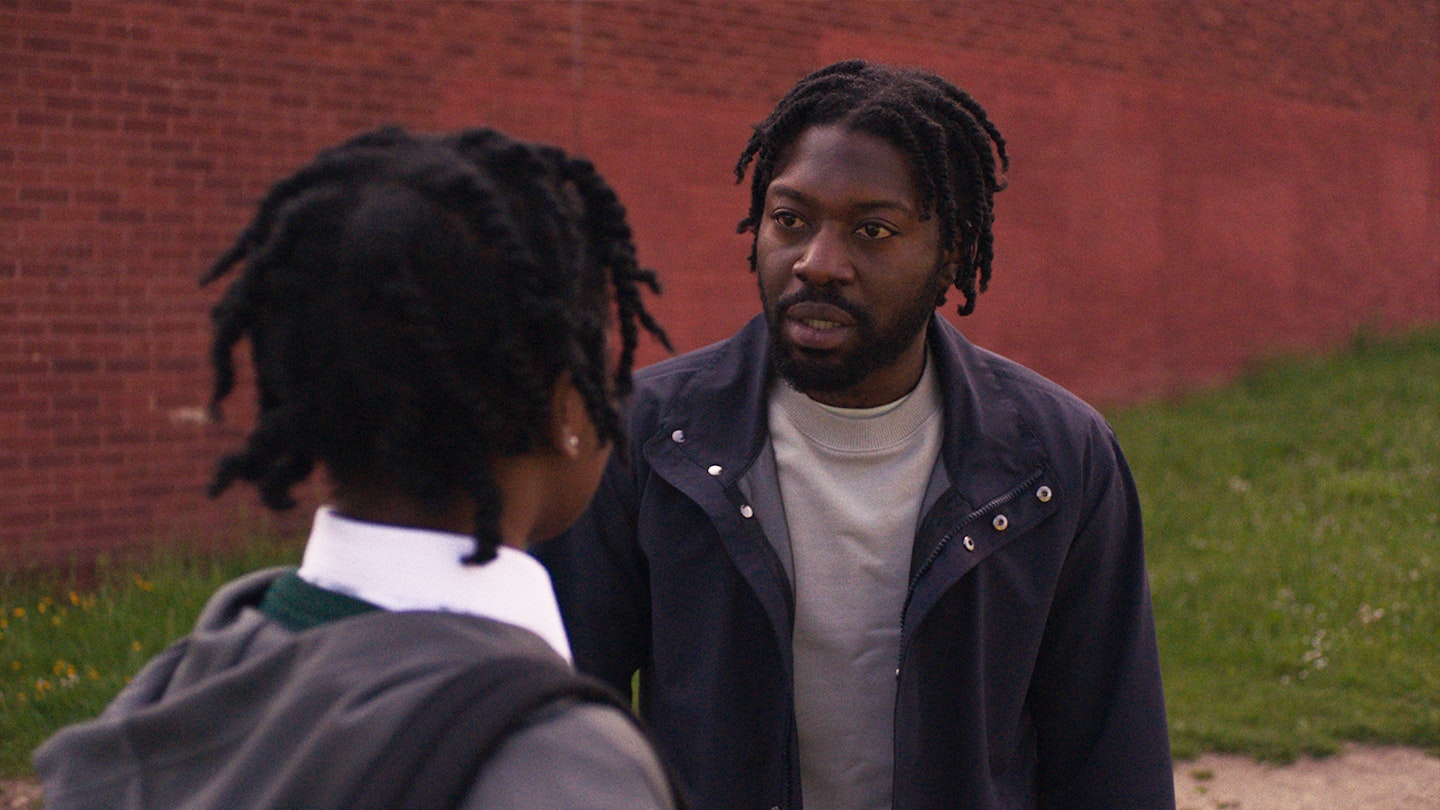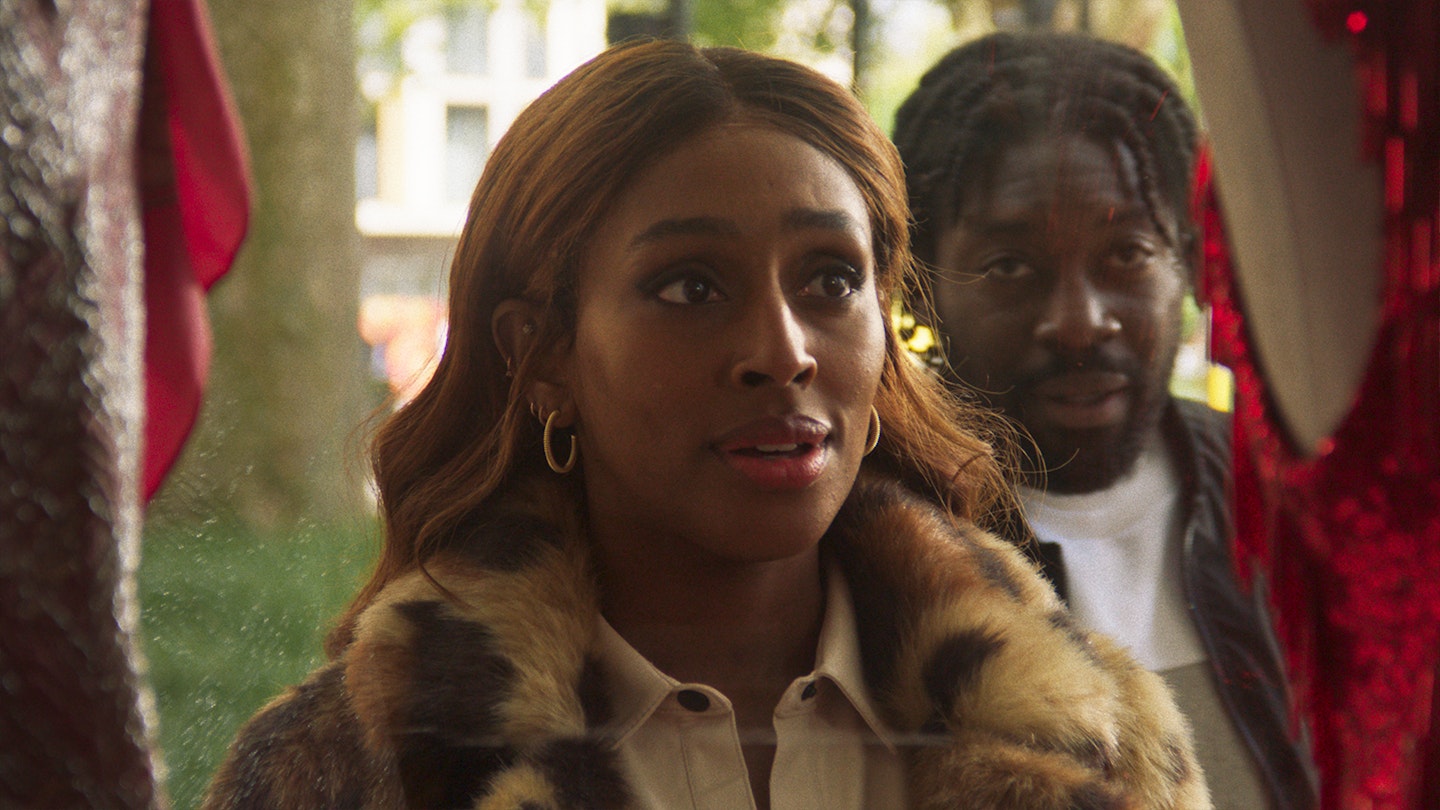For a film that combines family dynamics and gender identity with the musical force of Tina Turner, Dionne Edwards’ ambitious debut feature offers plenty of heart and emotional weight. The beauty behind Edwards’ script is the poetry she finds in Travis (Natey Jones) — a man who finds freedom, joy and expression from his cross-dressing inhibitions and suppressed inner-fantasies versus the ‘macho’ image he fronts amongst his South London community — plus his Tina Turner loving partner Candice (Alexandra Burke) and daughter Kenisha (Temilola Olatunbosun). Soulful direction is conveyed through his eyes, where the stunning dress in question has a hypnotic allure, feeding the empowerment for those who come into contact with it. For a taboo subject, it’s a timely examination of masculinity, escaping the pigeon-holed storytelling of Black British stories to illustrate there’s more in our arsenal ready to tell.

Edwards’s film plays a lot with stereotypical conventions surrounding gender expectations. It’s a bold commentary on the many roles we play to fit in with society whilst learning to be comfortable in our own skin. Both Jones and Burke give stellar performances. Jones’ tormented portrayal contrasts beautifully with Burke’s strong-willed Candice, who yearns to escape her low-paid job for a glimmer of stardom. As secrets unravel, their emotional conflict translates into a fascinating look into dominance and vulnerability.
Occasionally, the plot suffers from the odd stumble. The multi-arc storyline between Travis’s emotional awakening, Candice’s musical audition and Kenisha’s school troubles never quite finds its cohesive feet, while the film's explorations into cross-dressing suggest a missed opportunity to delve deeper into Travis's psychology. However, it heavily relies on the emotional investment it finds in Jones, Burke and Olatunbosun, and they make this nuanced exploration genuinely worthwhile.
